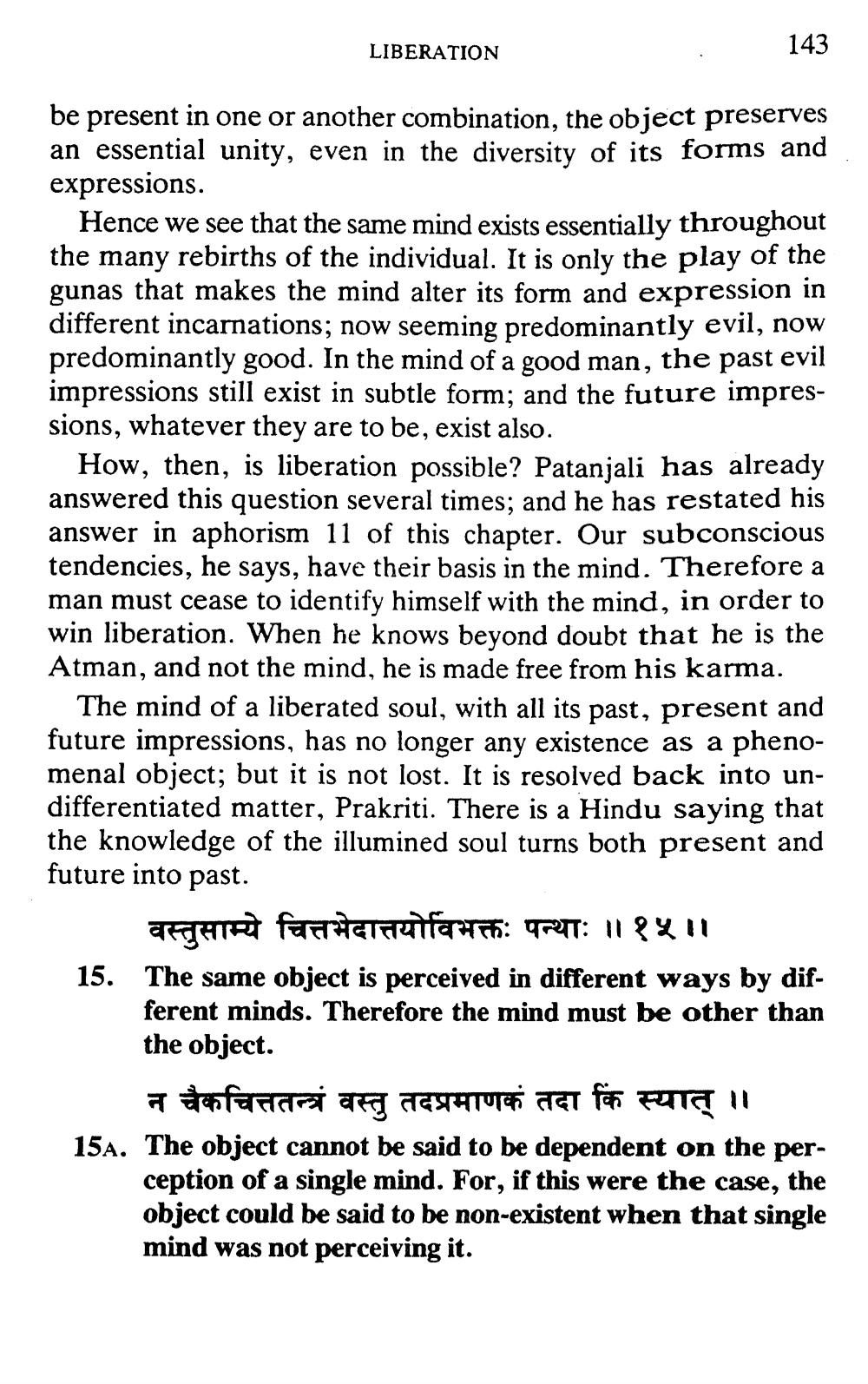________________
LIBERATION
143
be present in one or another combination, the object preserves an essential unity, even in the diversity of its forms and expressions.
Hence we see that the same mind exists essentially throughout the many rebirths of the individual. It is only the play of the gunas that makes the mind alter its form and expression in different incarnations; now seeming predominantly evil, now predominantly good. In the mind of a good man, the past evil impressions still exist in subtle form; and the future impressions, whatever they are to be, exist also.
How, then, is liberation possible? Patanjali has already answered this question several times; and he has restated his answer in aphorism 11 of this chapter. Our subconscious tendencies, he says, have their basis in the mind. Therefore a man must cease to identify himself with the mind, in order to win liberation. When he knows beyond doubt that he is the Atman, and not the mind, he is made free from his karma.
The mind of a liberated soul, with all its past, present and future impressions, has no longer any existence as a phenomenal object; but it is not lost. It is resolved back into undifferentiated matter, Prakriti. There is a Hindu saying that the knowledge of the illumined soul turns both present and future into past.
वस्तुसाम्ये चित्तभेदात्तयोविभक्तः पन्थाः ॥१५॥ 15. The same object is perceived in different ways by dif
ferent minds. Therefore the mind must be other than the object.
न चैकचित्ततन्त्रं वस्तु तदप्रमाणकं तदा किं स्यात् । 15A. The object cannot be said to be dependent on the per
ception of a single mind. For, if this were the case, the object could be said to be non-existent when that single mind was not perceiving it.




